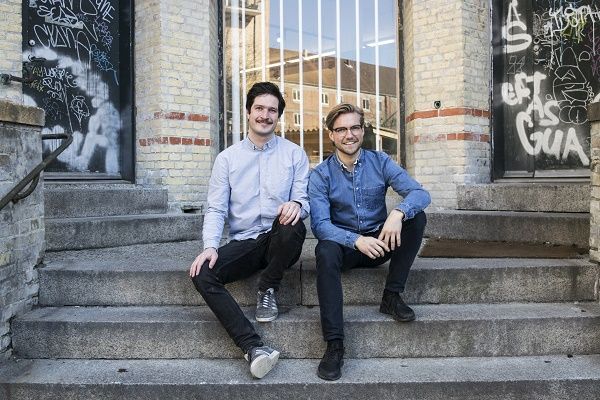Pack your feather dusters away, Jeeves and Alfred! There’s a new butler in town and he’s taking the load off busy Airbnb leasers.
Key Butler is a personal Airbnb rental manager that helps people renting out their apartments to accommodate guests by assuming the rather mundane duties, such as receiving guests, key delivery, apartment cleaning, customer service, account optimisation and calendar maintenance.
Investment has been served
Since being founded by Sune Liengaard in 2015, Key Butler has experienced rapid development and has expanded into Norway and Sweden through a series of mergers.
In 2016, Key Butler joined forces with Norwegian firm Lotel, founded by Oscar Hellenes, and last month it merged with Sweden’s leading rental assistance player, Tophost, in a bid to consolidate its position as the Nordic leader in the area and gain a foothold in Stockholm.
But perhaps the biggest boost came in February, when a group led by Norwegian billionaire and hotel kingpin, Petter Stordalen – who recently revealed plans to invest 800 million kroner in a new hotel at Copenhagen Airport – decided to invest 4.46 million kroner into the project.
“For us the investment [by the Stordalen group] was a major next step for us, allowing us to to improve our service, deliver better products for customers and aid expansion into the cabin and vacation rental sector,” Hellenes, the CEO and co-founder of Key Butler, told CPH POST.
“Many of our current customers want us to rent out their summer and winter cabins. There is a lot of demand and it’s the same service for us, just a different geography.”
READ MORE: Copenhagen considering rental ceiling for Airbnb
Plans afoot
Currently, Key Butler has about 15 butlers working in Copenhagen, Oslo, Bergen, Trondheim and Amsterdam – its only foray outside the Nordic market thus far. But Malmö and Gothenburg are both being considered for future locations, and the company hopes to expand to 50 butlers down the road.
But the focus remains on improving its product and consolidating its market position in the Nordics.
“We’ve been expanding rapidly for two years, so now we want to focus on homeowners and delivering a great service before making a decision on whether to further expand,” said Liengaard.
Regardless of how that decision plays out, there is plenty of reason to be optimistic. The number of customers turning to Key Butler has quintupled from 2015-2016, and demand for its services has exceeded expectations.
READ MORE: Airbnb hosts in Denmark offer more beds than local hotels
Airbnb dilemma
Though not directly affiliated, being so intimately connected to Airbnb also means there could be some pitfalls on the horizon, particularly in the light of more stringent legislation levied against Airbnb in some cities.
And while Copenhagen Municipality has indicatedit didn’t see Airbnb as a problem, it’s still early days in the grand scheme of things – particularly given that the number of overnight stays booked via Airbnb is now surpassing hotel stays in Denmark. “We are just starting to learn about this,” one official recently told CPH POST.
But Key Butler is confident that Copenhagen won’t meet the same fate as cities like New York, London and Barcelona, where local authorities have cracked down on the portal.
“We don’t see this happening in Scandinavia. There is a lot happening within shared economy regulation, but most politicians and regulators see it as a huge win for the economy,” said Hellenes.
“It brings in more tourism and money to local businesses and homeowners. It’s a healthy usage of home markets,” Liengaard added.
Explosion of expats
Key Butler doesn’t currently have an English version of its Danish website, but it expects to have something up in the very near future, possibly within a week. And embracing its English customers is no coincidence, according to Hellenes.
“We’re turning to English because we’ve realised that international homeowners and expats tend to travel more because they have another nationality and home base. In fact, more and more of our frequent users are expats and internationals,” he said.
In the meantime, the company does have English-language information on its Norwegian and Swedish sites, which you can peruse here.















